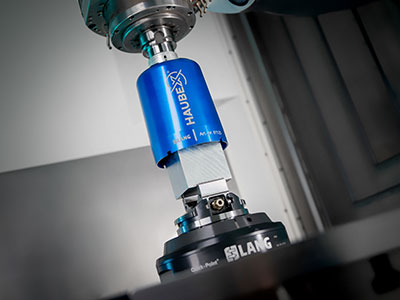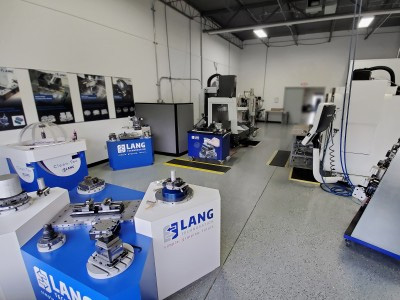Privacy Policy
Name and contact of the responsible person in accordance with Article 4 (7) DSGVO
LANG Technik GmbH
Albstrasse 1-6
73271 Holzmaden
Telephone: +49 7023 9585-0
E-Mail: info@lang-technik.de
Supervisor for data protection
LANG Technik GmbH
Albstrasse 1-6
73271 Holzmaden
Phone: +49 7023 9585-112
E-mail: datenschutz@lang-technik.de
Security and protection of your personal data
We consider it our primary responsibility to maintain the confidentiality of the personal information you provide to us and to protect it from unauthorised access. Therefore we take the appropriate safety measures to protect your personal data from unauthorised access. As a company under private law, we are subject to the provisions of the European Data Protection Regulation (DSGVO) and the regulations of the Federal Data Protection Act (BDSG). We have taken technical and organisational measures to ensure that the data protection regulations are observed both by us and by our external service providers.
Definitions
The law requires that personal data must be processed lawfully, fairly and in a manner and in a way that is comprehensible to the data subject ("lawfulness, fairness, transparency"). ("lawfulness, fairness, transparency"). To ensure this, we inform you about the individual legal definitions, which are also used in this data protection declaration:
- Personal data
"Personal data" is any information that relates to an identified or identifiable natural person (hereinafter referred to as the "data subject"); an identifiable is a natural person who can be identified, directly or indirectly, in particular by means of an association with an identifier such as a name, an identification number, location data, an online identifier or to one or more special features which express characteristics that are an expression of the physical, physiological, genetic, mental, economic, cultural or social identity of that natural person. - Processing
"Processing" means any operation or set of operations which is performed upon personal data, whether or not by automatic means, such as collection, recording, organisation, filing, storage, adaptation or alteration, retrieval, consultation, use, disclosure by transmission, dissemination or otherwise making available, alignment or combination, restriction, erasure or destruction. - Restriction of processing
"Restriction of processing" means the marking of stored personal data with the aim of limiting their future processing. - Profiling
"Profiling" means any automated processing of personal data which consists in using such personal data to evaluate certain personal aspects relating to a natural person, in particular to analyse or predict aspects relating to that natural person's performance at work, economic situation, health, personal preferences, interests, reliability, behaviour, location or change of location. - Pseudonymisation
"Pseudonymisation" means the processing of personal data in such a way that the personal data can no longer be attributed to a specific data subject without the addition of further information, provided that such further information is kept separately and is subject to technical and organisational measures which ensure that the personal data cannot be attributed to an identified or identifiable natural person. - File system
"File system" means any structured collection of personal data accessible according to specified criteria, whether such collection is maintained in a centralised, decentralised or functional or geographical manner. - Responsible person
"Responsible Person" means a natural or legal person, public authority, agency or other body which alone or jointly with others determines the purposes and means of the processing of personal data; where the purposes and means of such processing are determined by Union or Member State law, the Responsible Person or the specific criteria for his or her designation may be provided for under Union or Member State law. - Processor
"Processor" means a natural or legal person, public authority, agency or other body which processes personal data on behalf of the controller. - Recipient
"Recipient" means a natural or legal person, public authority, agency or other body to whom personal data are disclosed, whether or not a third party. However, public authorities which may receive personal data in the context of a specific investigative task under Union or Member State law shall not be considered as recipients; the processing of such data by those authorities shall be carried out in accordance with the applicable data protection rules in accordance with the purposes of the processing. - Third party
"Third party" means a natural or legal person, public authority, agency or other body, other than the data subject, the controller, the processor and the persons authorised to process the personal data under the direct responsibility of the controller or the processor. - Consent
"Consent" of the data subject means any freely given specific, informed and unambiguous indication of his or her wishes in the form of a statement or other unambiguous affirmative act by which the data subject signifies his or her agreement to personal data relating to him or her being processed.
Legitimacy of the processing
The processing of personal data is only legitimate if there is a legal basis for the processing. Pursuant to Article 6 (1) lit. a - f DSGVO, the legal basis for processing may be in particular:
- The data subject has given consent to the processing of personal data concerning him or her for one or more specific purposes;
- processing is necessary for the performance of a contract to which the data subject is a party or for the implementation of pre-contractual measures taken at the request of the data subject; or of the data subject;
- the processing is necessary for compliance with a legal obligation to which the responsible person is subject to;
- the processing is necessary in order to protect the vital interests of the data subject or of another natural person;
- processing is necessary for the performance of a task carried out in the public interest or in the exercise of official authority vested in the controller;
- processing is necessary for the purposes of the legitimate interests of the data controller or of a third party, except where such interests are overridden by the interests or fundamental rights and freedoms of the data subject which require the protection of personal data, in particular where the data subject is a child.
Information on the collection of personal data
(1) In the following, we inform you about the collection of personal data when using our website. Personal data are e.g. name, address, e-mail addresses, user behaviour.
(2) If you contact us by e-mail or via a contact formula, the data you provide (your e-mail address, your name and your telephone number, if applicable) will be stored by us in order to answer your questions. We delete the data accruing in this context after the saving is no longer necessary, or the processing is restricted if legal obligations to retain data exist.
Collection of personal data when visiting our website
When you use our website for information purposes only, i.e. if you do not register or otherwise transmit information to us, we only collect the personal data that your browser transmits to our server. If you wish to view our website, we collect the following data, which is technically necessary for us to display our website to you and to ensure its stability and security (legal basis is Art. 6 para. 1 p. 1 lit. f DSGVO):
- IP address
- Date and time of the request
- Time zone difference from Greenwich Mean Time (GMT)
- Content of the request (specific page)
- Access status/HTTP status code>
- Amount of data transferred in each case
- Website from which the request came
- Browser
- Operating system and its interface
- Language and version of the browser software.
Use of cookies
(1) In addition to the data mentioned above, cookies are stored on your computer when you use our website. Cookies are small text files that are stored on your hard drive in relation to the browser you are using and which provide the party setting the cookie with certain information. Cookies cannot execute programs or transmit viruses to your computer. They are used to make the website as a whole more user-friendly and effective.
(2) This website uses the following types of cookies, the scope and mode of operation of which are explained in the following explained below:
- Transient cookies (a.)
- Persistent cookies (b.).
- Transient cookies are automatically deleted when you close the browser. These include, in particular, session cookies. These cookies store a so-called session ID, which can be used to assign various requests from your browser to the same session. This enables your computer to be recognised when you return to our website. The session cookies are deleted when you log out or close the browser.
- Persistent cookies are automatically deleted after a set period of time, which may vary depending on the cookie. You can delete the cookies at any time in the security settings of your browser.
- You can configure your browser setting according to your preferences and, for example, refuse to accept third-party cookies or all cookies. So-called "third party cookies" are cookies that have been set by a third party, i.e. not by the actual website you are currently visiting. Please note that by deactivating cookies you may not be able to use all the functions of this website.
Further functions and offers of our website
(1) In addition to the purely informational use of our website, we offer various services that you can use if you are interested. For this purpose, you usually have to provide further personal data which we use to provide the respective service and for which the principles for data processing mentioned above apply.
(2) In some cases, we use external service providers to process your data. These have been carefully selected and commissioned by us, are bound by our instructions and are regularly monitored.
(3) Furthermore, we may pass on your personal data to third parties if we offer promotions, competitions, contracts or similar services together with partners. You will receive more detailed information on this when you provide your personal data or below in the description of the offer.
(4) If our service providers or partners are based in a country outside the European Economic Area (EEA), we will inform you about the consequences of this in the description of the offer.
Children
Our offer is basically aimed at adults. Persons under the age of 18 should not transmit any personal data to us without the consent of their parents or legal guardians.
Rights of the data subject
(1) Withdrawal of consent
Where the processing of personal data is based on consent given, you have the right to withdraw your consent at any time. The revocation of consent does not affect the lawfulness of the processing carried out on the basis of the consent until the revocation. You can contact us at any time to exercise the right of revocation.
(2) Right to confirmation
You have the right to request confirmation from the controller as to whether we are processing personal data relating to you. You can request confirmation at any time using the contact details above.
(3) Right of access
To the extent that personal data is processed, you may at any time request access to this personal data and about the following information:
- The purposes of the processing;
- The categories of personal data processed;
- The recipients or categories of recipients to whom the personal data have been or will be disclosed, in particular in the case of recipients in third countries or to international organisations
- If possible, the planned duration for which the personal data will be stored, or, if this is not possible, the criteria for determining this duration;
- The existence of a right to rectify or erase the personal data concerning you or to erasure of the personal data concerning you or to restrict the processing by the controller or to object to such processing;
- The existence of a right of appeal to a supervisory authority;
- If the personal data are not collected from the data subject, any available information on the origin of the data;
- The existence of automated decision-making, including profiling, pursuant to Article 22(1) and (4) of the GDPR and, at least in those cases, meaningful information about the logic involved and the scope and intended effects of such processing for the data subject.
If personal data is transferred to a third country or to an international organisation, you have the right to be informed about the appropriate safeguards pursuant to Article 46 of the GDPR in connection with the transfer. We will provide a copy of the personal data that is the subject of the processing. For any further copies you request, we may charge a reasonable fee based on the administrative costs. If you make the request electronically, the information must be provided in a commonly used electronic format unless it states otherwise. The right to receive a copy under paragraph 3 must not affect the rights and freedoms of other persons. prejudice the rights and freedoms of others.
(4) Right to Correction
You have the right to request that we correct any inaccurate personal data relating to you without undue delay. Taking into account the purposes of the processing, you have the right to request the completion of incomplete personal data - also by means of a supplementary statement - to demand.
(5) Right to be deleted ("right to be forgotten")
You have the right to request the data controller to delete personal data relating to you without undue delay and we are obliged to delete personal data without undue delay if one of the following reasons applies:
- The personal data is no longer necessary for the purposes for which it was collected or otherwise processed.
- The data subject revokes the consent on which the processing is based pursuant to Article 6(1)(a) or Article 9(2)(a) of the GDPR and there is no other legal basis for the processing.
- The data subject objects to the processing pursuant to Article 21(1) of the GDPR and there are no overriding legitimate grounds for the processing, or the data subject objects to the processing pursuant to Article 21(2) of the GDPR.
- The personal data have been processed unlawfully.
- The erasure of the personal data is necessary for compliance with a legal obligation obligation under Union or Member State law to which the controller is subject. controller is subject to.
- The personal data has been collected in relation to information society services offered information society services pursuant to Article 8(1) of the GDPR.
Where the data controller has made the personal data public and is obliged to erase it pursuant to paragraph 1, it shall take reasonable steps, including technical measures, having regard to the available technology and the cost of implementation, to inform data controllers which process the personal data that a data subject has requested that they erase all links to, or copies or replications of, that personal data.
The right to be deleted ("right to be forgotten") does not exist insofar as the processing is necessary:
- for the exercise of the right to freedom of expression and information;
- for compliance with a legal obligation which requires processing under Union or Member State law to which the controller is subject, or for the performance of a task carried out in the public interest or in the exercise of official authority vested in the controller;
- for reasons of public interest in the field of public health pursuant to Article 9(2)(h) and (i) and Article 9(3) of the GDPR;
- for archiving purposes in the public interest, scientific or historical research purposes or statistical purposes pursuant to Article 89(1) of the GDPR, where the right referred to in paragraph 1 is likely to make impossible or seriously prejudice the achievement of the purposes of such processing; or
- for the assertion, exercise or defence of legal claims.
(6) Right to restriction of processing
You have the right to request us to restrict the processing of your personal data if one of the following conditions is met:
- the accuracy of the personal data is contested by the data subject for a period enabling the data controller to verify the accuracy of the personal data,
- the processing is illegal and the data subject objects to the erasure of the personal data and requests instead the restriction of the use of the personal data;
- the data controller no longer needs the personal data for the purposes of processing, but the data subject needs it for the establishment, exercise or defence of legal claims; or
- the data subject has objected to the processing pursuant to Article 21(1) of the GDPR, as long as it has not yet been determined whether the legitimate grounds of the controller override those of the data subject. Where processing has been restricted in accordance with the above conditions, such personal data shall only be processed, apart from being stored, with the consent of the data subject or for the establishment, exercise or defence of legal claims or for the protection of the rights of another natural or legal person or for reasons of substantial public interest of the Union or of a Member State. In order to exercise the right to restrict the processing, the data subject may contact contact us at any time using the contact details provided above.
(7) Right to data portability
You have the right to receive the personal data concerning you that you have provided to us in a structured, commonly used and machine-readable format, and you have the right to transfer this data to another data controller without hindrance from the controller to whom the personal data was provided, provided that:
- the processing is based on consent pursuant to Article 6(1)(a) or Article 9(2)(a) or on a contract pursuant to Article 6(1)(b) DSGVO; and
- the processing is carried out with the aid of automated procedures. When exercising the right to data portability pursuant to paragraph 1, you have the right to obtain that the personal data be transferred directly from one controller to another controller, where technically feasible. The exercise of the right to data portability does not affect the right to erasure ("right to be forgotten"). This right shall not apply to processing necessary for the performance of a task carried out in the public interest or in the exercise of official authority vested in the controller. has been delegated.
(8) Right of objection
You have the right to object at any time, on grounds relating to your particular situation, to the processing of personal data concerning you which is carried out on the basis of Article 6(1)(e) or (f) DSGVO; this also applies to profiling based on these provisions. The controller shall no longer process the personal data unless it can demonstrate compelling legitimate grounds for the processing which override the interests, rights and freedoms of the data subject, or for the establishment, exercise or defence of legal claims.
If personal data are processed for the purpose of direct marketing, you have the right to object at any time to the processing of personal data concerning you for the purpose of such marketing; this also applies to profiling insofar as it is associated with such direct marketing. If you object to processing for direct marketing purposes, the personal data will no longer be processed for these purposes. In the context of the use of information society services, notwithstanding Directive 2002/58/EC, you may exercise your right to object by means of automated procedures,
using technical specifications. You have the right to object, on grounds relating to your particular situation, to the processing of personal data concerning you which is carried out for scientific or historical research purposes, or for statistical purposes as referred to in Article 89(1), unless the processing is necessary for the performance of a task carried out in the public interest. You may exercise the right to object at any time by contacting contacting the respective data controller.
(9) Automated decisions in individual cases, including profiling.
You have the right not to be subject to a decision based solely on automated processing - including profiling - which produces legal effects concerning you or similarly significantly affects you. This does not apply if the decision:
- is necessary for the conclusion or performance of a contract between the data subject and the data controller,
- is permissible under Union or Member State law to which the controller is subject and that law contains suitable measures to safeguard the rights and freedoms and legitimate interests of the data subject; or
- with the explicit consent of the data subject. The data controller shall take reasonable steps to safeguard the data subject's rights and freedoms and legitimate interests, which include, at least, the right to obtain the data subject's involvement on the part of the data controller, to express his or her point of view and contest the decision. The data subject may exercise this right at any time by contacting the controller.
(10) Right to complain to a supervisory authority
They shall also have the right, without prejudice to any other administrative or judicial remedy, to lodge a complaint with a supervisory authority, in particular in the Member State of their residence, place of work or the place of the alleged infringement, if the data subject considers that the processing of personal data relating to them infringes this Regulation.
(11) Right to an effective judicial remedy
Without prejudice to any available administrative or non-judicial remedy, including the right to lodge a complaint with a supervisory authority pursuant to Article 77 of the GDPR, you shall have the right to an effective judicial remedy if you consider that your rights under this Regulation have been infringed as a result of the processing of your personal data not in compliance with this Regulation.
Use of Matomo in self-hosting
(1) This website uses the web analysis software Matomo to analyse and regularly improve the use of our website. The statistics obtained enable us to improve our offer and make it more interesting for you as a user. The legal basis for the use of Matomo is Art. 6 para. 1 p. 1 lit. f. DSGVO.
(2) A cookie is stored on your computer for this evaluation. The information generated by this cookie about your use of our website is transmitted exclusively to our server and is not passed on to third parties.
(3) This website uses Matomo with the extension "AnonymizeIP". This means that IP addresses are processed in abbreviated form, thus excluding the possibility of a direct link to a person. The IP address transmitted by your browser via Matomo is not merged with other data captured by us.
Use of NewRelic
(1) We use the software NewRelic on our website. This enables an analysis of your website usage. The information stored by the cookie about your use of this website (including your IP address) is transmitted to a NewRelic server in the USA. We process the data due to our overriding interest in the optimal marketing of our online offer in accordance with Art.6 para. 1 f) DSGVO.
(2) NewRelic will use the stored information for the purpose of evaluating your use of the website, compiling reports on website activity for website operators and providing other services relating to website activity and internet usage.
(3) NewRelic is certified under the Privacy Shield Agreement and thus guarantees compliance with the European data protection legislation:
https://www.privacyshield.gov/participant?id=a2zt0000000TNPiAAO&status=Active"
(4) For more information about NewRelic's privacy practices, please visit:
https://newrelic.com/termsandconditions/privacy
Integration of Google Maps
(1) On this website we use the offer of Google Maps. This allows us to show you interactive maps directly on the website and enables you to comfortably use the map function.
(2) By visiting the website, Google receives the information that you have called up the corresponding sub-page of our website. In addition, the data mentioned under "Collection of personal data when visiting our website" of this statement will be transmitted. This occurs regardless of whether Google provides a user account through which you are logged in or whether no user account exists. If you are logged in to Google, your data will be directly assigned to your account. If you do not want the assignment with your profile at Google, you must log out before activating the button. Google stores your data as usage profiles and uses them for the purposes of advertising, market research and/or demand-oriented design of its website. Such an evaluation is carried out in particular (even for users who are not logged in) to provide needs-based advertising and to inform other users of the social network about your activities on our website. You have the right to object to the creation of these user profiles, whereby you must contact Google to exercise this right.
(3) For more information on the purpose and scope of data collection and its processing by the plug-in provider, please refer to the provider's privacy policy. There you will also find further information on your rights in this regard and setting options for the protection of your privacy: http://www.google.de/intl/de/policies/privacy.
Integration of YouTube
This site uses the provider YouTube for the integration of videos, the service provider thereby is: Google Ireland Limited, Gordon House, Barrow Street, Dublin 4, Ireland. Parent company: Google Inc, 1600 Amphitheatre Parkway, Mountain View, CA 94043, USA. The YouTube videos on this page are embedded with the extended data protection mode (in this case, YouTube still contacts Google's Double Klick service, but personal data is not evaluated in this process, according to Google's privacy policy). This means that YouTube no longer stores information about visitors unless they watch the video. If you click on the video, your IP address is transmitted to YouTube and YouTube knows that you have watched the video. If you are logged in to YouTube, this information is also assigned to your user account (you can prevent this by logging out of YouTube before viewing the video). You can find more information on the handling of user data in YouTube's privacy policy, which you can access here: https://policies.google.com/privacy
























